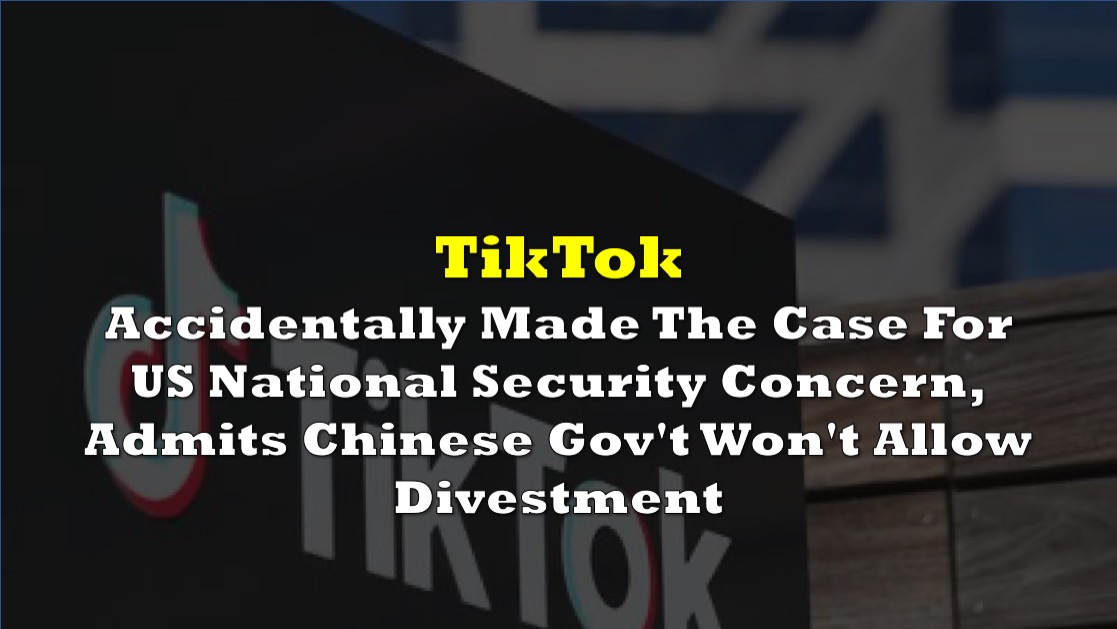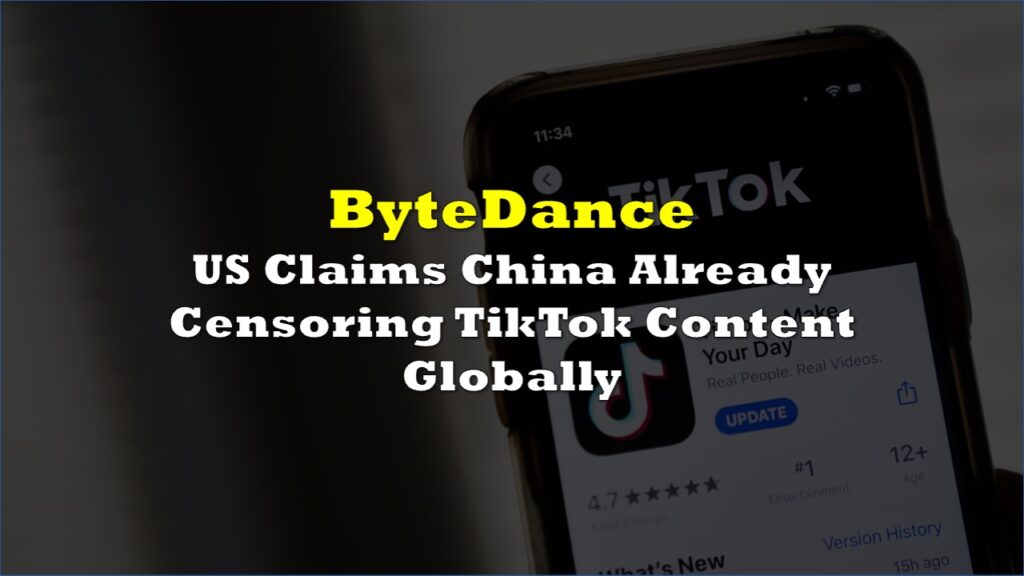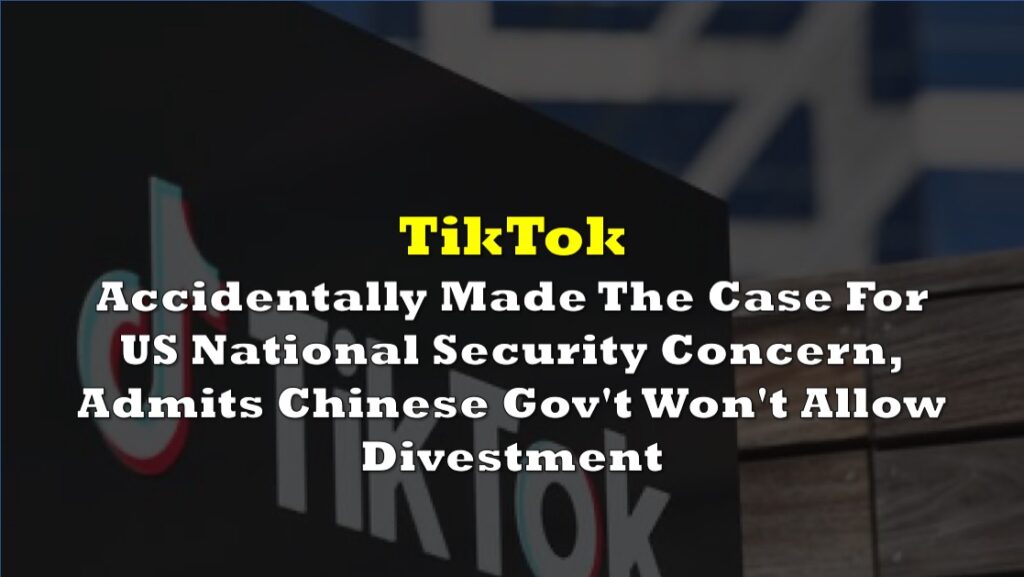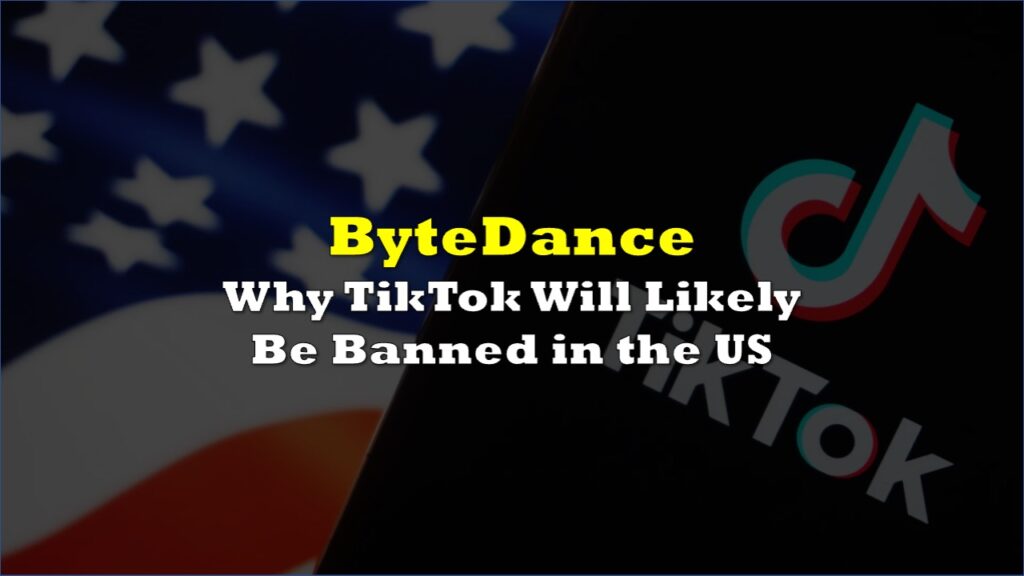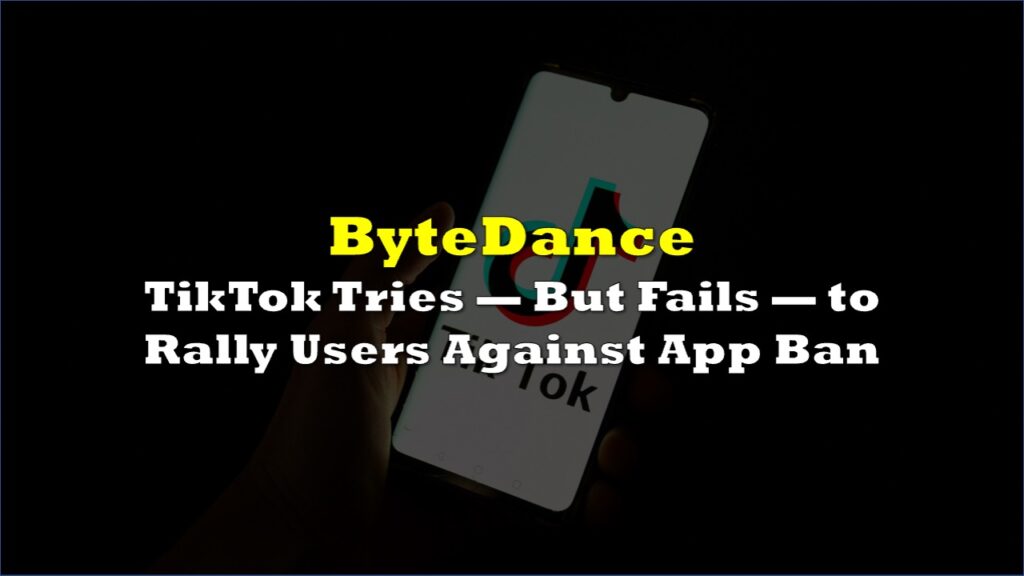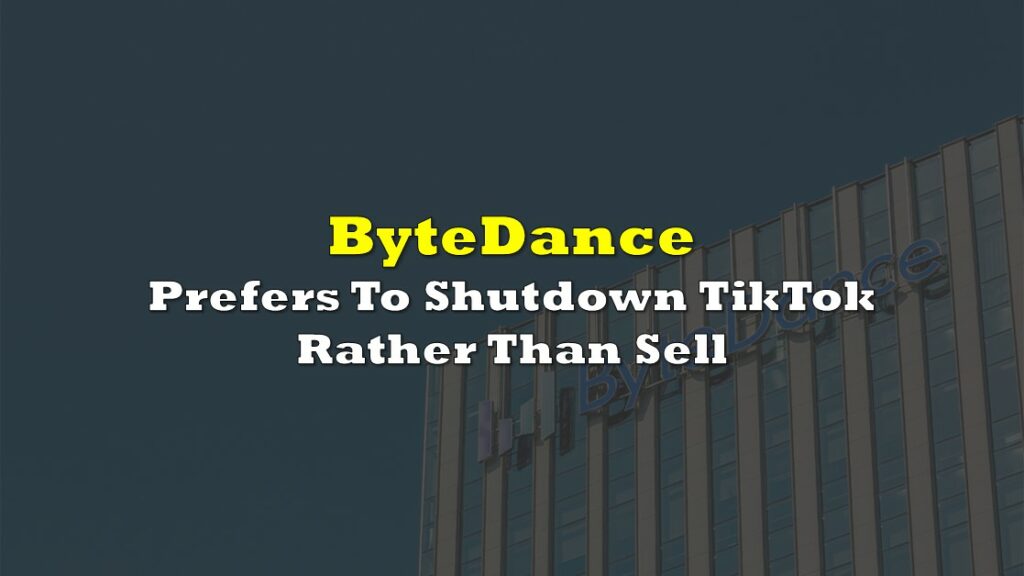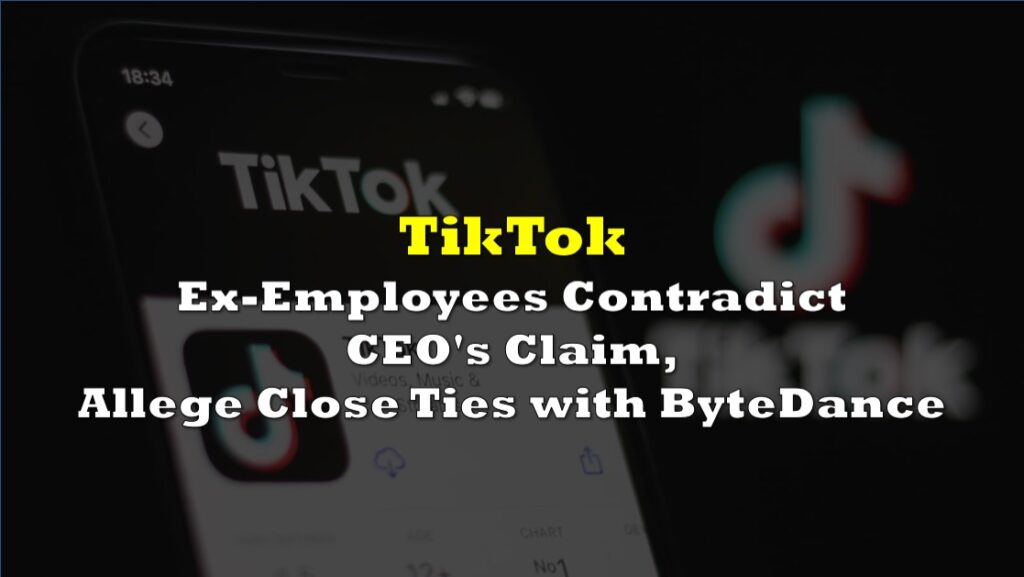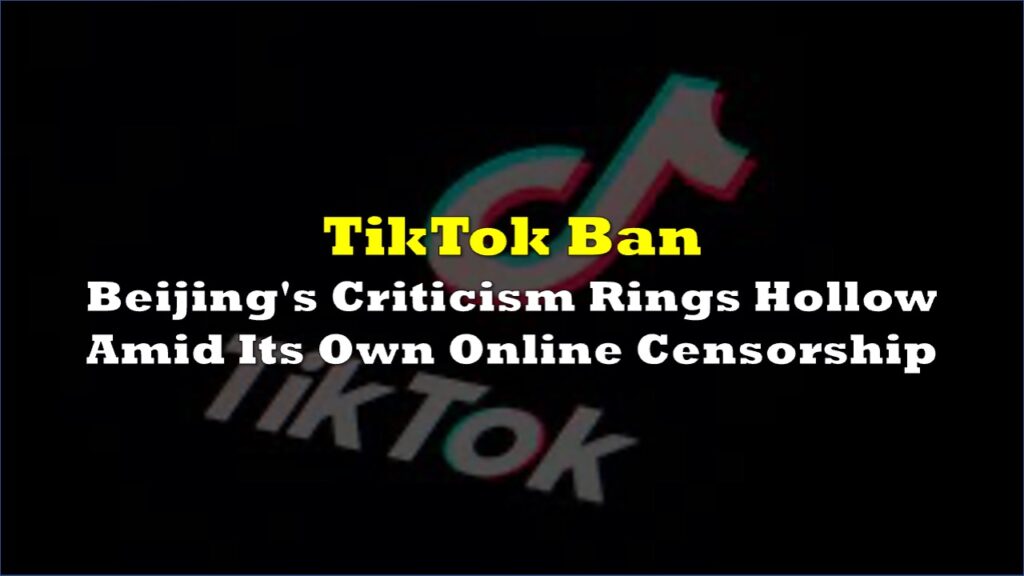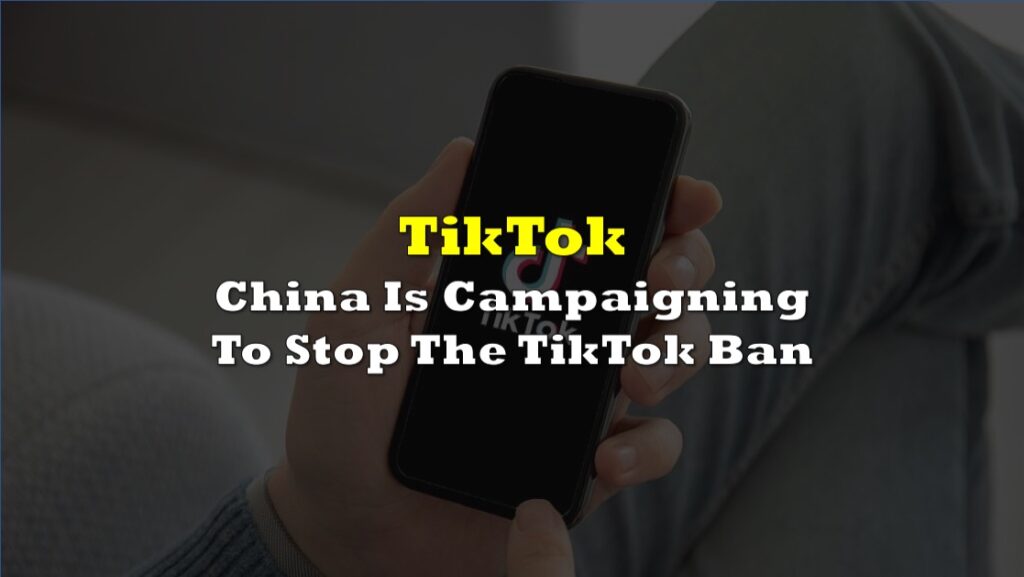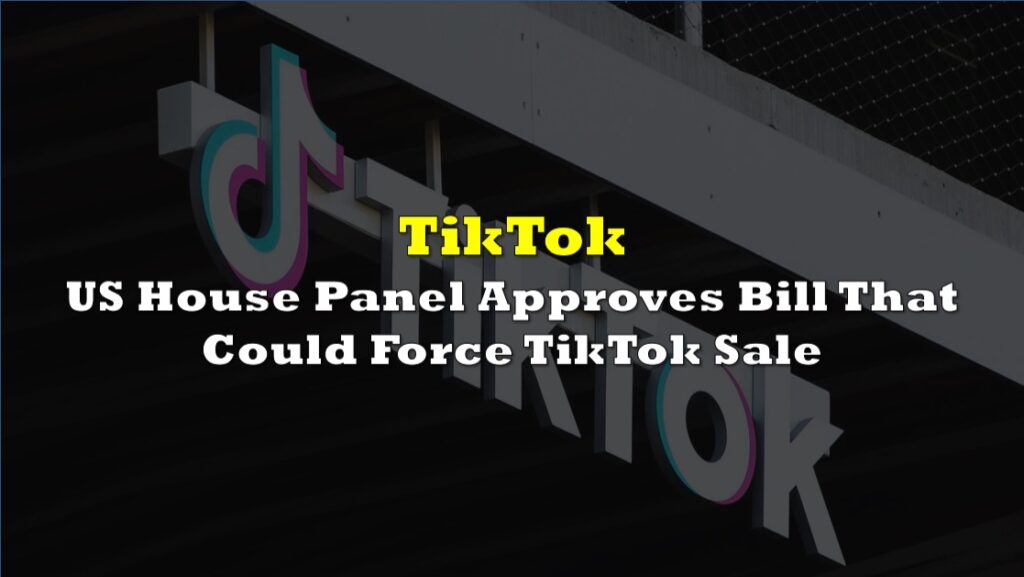TikTok has inadvertently thrust itself into the heart of a national security debate with its firm stance against complying with a divestment requirement imposed by the U.S. government. In a recent petition for review filed by the company, TikTok has laid out its argument, contending that the Chinese government’s opposition to divestment renders compliance impossible, thereby effectively making the case for heightened national security scrutiny.
“At the center of the controversy is the Protecting Americans From Foreign Adversary Controlled Applications Act, which specifically targets TikTok, aiming to force the company to sever ties with its Chinese parent company, ByteDance,” TikTok stated in its petition. “The Chinese government has made clear that it would not permit a divestment of the recommendation engine that is a key to the success of TikTok in the United States.”
😳 @TikTokPolicy literally says it cannot comply with the divestment requirement because “the Chinese government has made clear that it would not permit a divestment” of ByteDance’s algorithm.
— Michael Sobolik (@michaelsobolik) May 7, 2024
They’re literally making the national security case for the U.S. government. https://t.co/GMgECor9gY pic.twitter.com/Fd4glisxRM
TikTok’s petition challenges the constitutionality of the Act, arguing that it unfairly singles out the platform for permanent nationwide prohibition, thereby stifling free speech and expression for its 170 million American users.
“We are facing an unprecedented situation where Congress has enacted a law that subjects a single, named speech platform to a permanent, nationwide ban,” TikTok’s petition reads.
“Not commercially, not technologically, not legally”
Key to TikTok’s argument is the assertion that the mandated divestiture is not feasible within the Act’s stringent timeline of 270 days.
“The ‘qualified divestiture’ demanded by the Act to allow TikTok to continue operating in the United States is simply not possible: not commercially, not technologically, not legally,” TikTok emphasized in its petition.
TikTok further argues that severing its U.S. operations from the globally integrated platform poses significant commercial risks, arguing that the platform’s appeal lies in its ability to offer a diverse array of content from around the world.
“A divestment of the U.S. TikTok platform, without any operational relationship with the remainder of the global platform, would preclude the interoperability necessary to make international content seamlessly available in the U.S. market and vice versa,” the petition added.
Moreover, the technological challenges of disentangling TikTok’s source code from ByteDance’s infrastructure are formidable. TikTok emphasizes that the platform’s development involves millions of lines of code, meticulously crafted by thousands of engineers over several years.
“It would take years for an entirely new set of engineers to gain sufficient familiarity with the source code to perform the ongoing, necessary maintenance and development activities for the platform,” TikTok’s petition underscores, adding that these engineers would also “need access to ByteDance software tools, which the Act prohibits.”
China’s strict regulations on the export of certain technologies, including personal interactive data algorithms, create a regulatory barrier to divestment. Any attempt to transfer ownership of TikTok’s recommendation algorithms would require governmental approval, a process fraught with uncertainty and potential roadblocks.
Furthermore, recent enhancements to China’s export control laws, following heightened tensions with the U.S., signal a clear intent to assert control over transactions involving technologies developed within its borders.
“Curtailing massive amounts of protected speech”
Moreover, TikTok alleges that Congress failed to provide any substantial evidence to justify singling out the platform for such extreme measures.
“Even the Act’s sponsors recognized that reality, and therefore have tried mightily to depict the law not as a ban at all, but merely a regulation of TikTok’s ownership,” TikTok’s petition highlights.
TikTok’s petition underscores broader implications regarding governmental oversight of digital platforms and the delicate balance between national security interests and fundamental rights.
“As part of this engagement, Petitioners have voluntarily invested more than $2 billion to build a system of technological and governance protections — sometimes referred to as ‘Project Texas’ — to help safeguard U.S. user data and the integrity of the U.S. TikTok platform against foreign government influence,” TikTok stated.
The platform also called the Act a violation of the First Amendment, adding that “Congress has made a law curtailing massive amounts of protected speech.”
TikTok argues that by effectively banning its operations in the U.S., Congress has overstepped its bounds on protected speech. Unlike traditional media outlets subject to government licensing due to their use of public airwaves, online platforms operate in a space where private ownership and speech autonomy are paramount.
“The Act’s alternative to a ban — a so-called “qualified divestiture” — is illusory to the point of being no alternative at all,” TikTok contends.
Furthermore, TikTok warns of the Act’s effect on free speech, as it affects “a popular forum for free speech and expression used by over 170 million Americans each month.” TikTok asserts that the Act’s basis rests on speculative and analytically flawed concerns regarding data security and content manipulation, without substantive evidence to justify such drastic measures.
“The Act burdens TikTok Inc.’s First Amendment rights — in addition to the free speech rights of millions of people throughout the United States,” TikTok’s petition emphasizes.
Information for this story was found via the sources mentioned. The author has no securities or affiliations related to the organizations discussed. Not a recommendation to buy or sell. Always do additional research and consult a professional before purchasing a security. The author holds no licenses.

